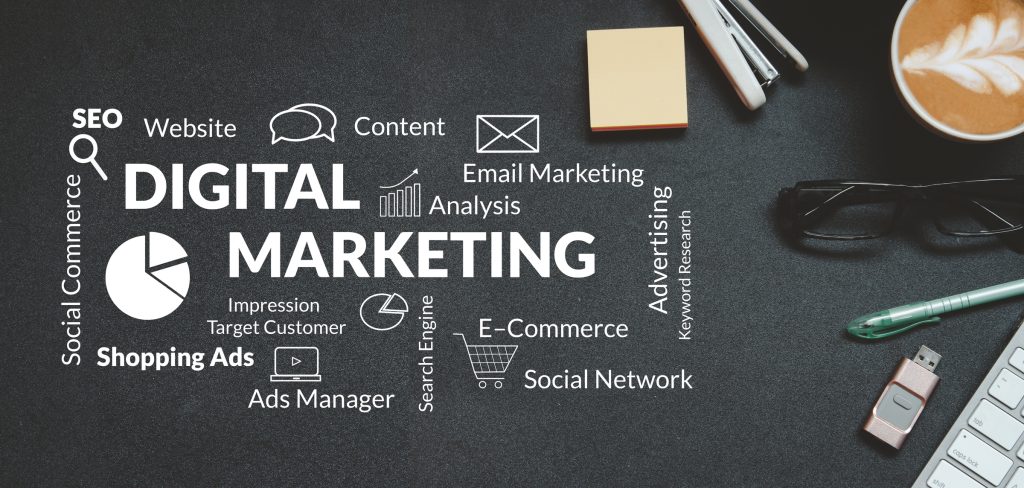Introduction
In today’s fast-paced and interconnected world, businesses need to adapt and evolve to meet the ever-changing needs and preferences of their customers. Multichannel marketing has emerged as a powerful strategy to engage with customers through various channels, enabling businesses to expand their reach and maximize their potential for success. In this article, we will explore the concept of multichannel marketing, its benefits, and effective strategies to implement it.
Understanding Multichannel Marketing
Multichannel marketing refers to the practice of utilizing multiple channels, both online and offline, to interact with customers and deliver marketing messages. It involves creating a seamless experience across various touchpoints, including websites, social media platforms, email, mobile apps, physical stores, and more. By employing a multichannel approach, businesses can engage customers at different stages of their buying journey and cater to their preferred communication channels.

The Benefits of Multichannel Marketing
- Expanded Reach: One of the primary advantages of multichannel marketing is the ability to reach a wider audience. By leveraging multiple channels, businesses can connect with customers who have different preferences and habits. Some individuals prefer browsing social media, while others rely on email newsletters or physical stores. By being present across multiple channels, businesses increase their chances of reaching and engaging potential customers.
- Enhanced Customer Experience: Multichannel marketing allows businesses to provide a consistent and personalized experience to customers. By understanding customer behavior and preferences across different channels, businesses can tailor their marketing efforts to align with individual needs. For example, a customer who abandons their shopping cart on a website can be targeted with a personalized email or retargeted through social media advertising, increasing the likelihood of conversion.
- Increased Sales and Conversions: When businesses connect with customers through various touchpoints, they create multiple opportunities for sales and conversions. Customers may encounter a product on social media, research it on a website, and then make a purchase at a physical store. By providing a seamless experience across channels and enabling customers to transition smoothly between them, businesses can increase sales and conversions.
- Improved Customer Insights: Multichannel marketing generates a wealth of customer data, providing businesses with valuable insights into customer behavior and preferences. By analyzing data from various channels, businesses can identify trends, patterns, and opportunities to refine their marketing strategies. This data-driven approach helps optimize marketing campaigns, target specific customer segments, and deliver more personalized experiences.
Effective Strategies for Multichannel Marketing
- Understand Your Customers: Start by gaining a deep understanding of your target audience. Conduct market research, analyze customer data, and segment your audience based on demographics, behaviors, and preferences. This knowledge will help you tailor your messaging and choose the most relevant channels for your customers.
- Consistent Branding: Maintain consistent branding across all channels to reinforce your brand identity and create a cohesive customer experience. Use consistent imagery, messaging, and tone of voice to build familiarity and trust with your audience.
- Seamless Integration: Ensure a seamless integration between different channels to provide a smooth customer journey. For example, if a customer starts an interaction on social media, make it easy for them to continue the conversation on your website or via email.
- Personalization: Leverage customer data to personalize your marketing efforts. Use targeted messaging, personalized recommendations, and dynamic content to engage customers and make them feel valued.
- Test and Optimize: Continuously test and optimize your multichannel marketing campaigns. Use A/B testing to identify the most effective channels, messages, and offers. Monitor analytics and key performance indicators (KPIs) to measure success and make data-driven improvements.

Summary
In conclusion, multichannel marketing has become an essential approach for businesses looking to thrive in today’s competitive landscape. By leveraging multiple channels and providing a seamless customer experience, businesses can expand their reach, enhance customer engagement, increase sales, and gain valuable insights into customer behavior.
The benefits of multichannel marketing are numerous. It allows businesses to reach a wider audience, catering to the preferences and habits of different customer segments. By delivering a consistent and personalized experience across channels, businesses can strengthen customer relationships and foster loyalty. Moreover, the ability to analyze data from various channels provides businesses with actionable insights to optimize marketing strategies and improve campaign performance.
To effectively implement multichannel marketing, businesses must thoroughly understand their target audience and tailor their messaging accordingly. Consistent branding, seamless integration between channels, and personalized content are key factors for success. Additionally, ongoing testing and optimization are crucial to ensure continuous improvement and maximize the impact of multichannel campaigns.
As technology continues to advance and customer preferences evolve, businesses must stay agile and adaptable in their marketing approach. Embracing multichannel marketing allows businesses to meet customers where they are, engage them through their preferred channels, and create meaningful connections that drive business growth and success.
In this era of connectivity, harnessing the power of multichannel marketing is no longer an option but a necessity for businesses that aim to stay competitive, relevant, and customer-centric.
___
by Thomas Theodoridis
source: PPCmate








